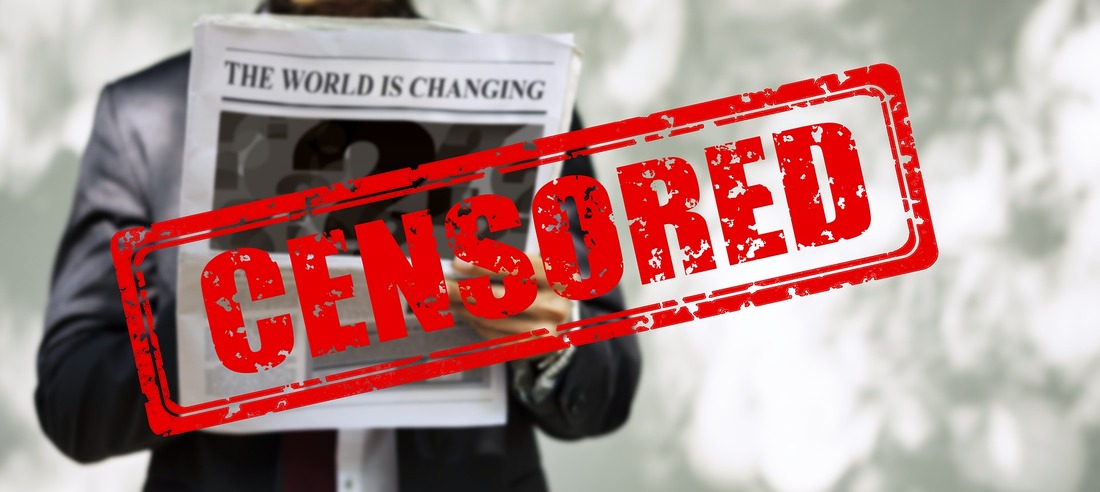|
Quora Question: Why am I supposed to respect someone's deeply held beliefs if these are not rooted in facts?
People need to be respected. Beliefs need to be examined and adapted to reality. Beliefs require facts to be validated. Of course, anyone can believe anything they like. But, for beliefs to be respected in any rational sense of that term they need to be examined in light of reason and evidence. A belief without investigation and not rooted in facts does not require respect.
The notion that there are different facts for different people is incoherent. While people may disagree about what the facts are, there is a way that the world is. There are things we know about how the world works. And, to the extent that our beliefs stray from this, they are inaccurate. So, the ultimate question is how we go about evaluating beliefs, both our own and others. A good set of criteria is outlined in How to Think About Weird Things by Theodore Schick and Lewis Vaughn. There are five elements to evaluate any belief or theory. First, a theory or belief should be testable. If you cannot even figure out how to go about determining if your theory explains the evidence, you don't have a good theory. To be testable means your hypothesis "predicts something more than what is predicted by the background theory alone." In short, we need this criterion because if there's no way to tell whether a theory is true or false it's really no good to us. Second, a theory/belief should be fruitful. What this means is that a good theory should make novel predictions. It should not only account for the evidence at hand but be able to address evidence that comes in later and even predict such new evidence. Einstein's theory of relativity is a good example of a fruitful theory because it made the novel prediction that light would be visible from a star behind the sun because the light would be bent by the gravitational field around the sun to be visible on earth. And, concerning criterion number one this was a testable claim. Once tested, it was verified. Third, a theory should have a wide scope. That is, a good theory explains a wide field of evidence. One of the differences between theories and hypotheses is their scope. Hypotheses address specific questions whereas theories attempt to provide a broad explanatory device. Theories that can explain a wide array of things are preferred, other things being equal, to more narrow theories. Fourth, a theory should be simple. This term should not be confused with simplistic. Many scientific theories are complex in terms of our ability to understand them but simple in the sense that they postulate fewer underlying entities or assumptions. A good example is a difference between Copernicus and Ptolemy. Ptolemy's geocentric theory could explain the orbits of the planets but it was quite complex whereas Copernicus' theory explained the same observable phenomena with less complexity. So, other things being equal, that theory was the better theory. Think of it this way. Suppose I come up with a theory to explain how the lights in my housework but it involves little gremlins running inside the light bulbs. Someone else can explain the same phenomenon but without postulating gremlins. So, their theory is simpler than mine. It should also be pointed out that my gremlin theory may fail on other criteria as well such as being testable. Finally, a theory should be conservative. Not in the political sense of the word. Rather, it should fit in with other things we know. If we have an explanation for something that we think is fairly certain and accurate then a new theory should fit in with that prior explanation. If it doesn't fit that may indicate our prior knowledge is flawed. We have to be open to that possibility but the burden of proof is on the new theory. An interesting examination of how this process works is offered by Thomas Kuhn's book The Structure of Scientific Revolutions. Many people will be inclined to lodge the following criticism at this point: But, that’s "just a theory." The criticism here is supposed to be that any given theory is not a fact. But, this misunderstands the relationship between fact and theory. No theory is a fact because facts and theories are two different things entirely. The facts are what we observe about the world around us. But, these facts need an explanation. This is what a theory is designed to do. It is a well-formulated attempt to explain the facts we observe. So, we observe the motion of the planets and the fact that an apple falls to the ground when we drop it. The theory of relativity attempts to explain these things. We observe different species and varieties of animals in the natural world and the theory of evolution attempts to explain how these varieties arose. We observe the motion of subatomic particles and the theory of quantum mechanics attempts to explain these observations. In each case, we begin with observations and construct an explanation to account for them. In each case, it makes little sense to criticize the theory by saying it's not a fact. Of course not! Theories are not facts and do not attempt to be. Theories can be correct or incorrect and the criteria outlined above is the best way to determine this. But, you must also understand what a theory is attempting to do. Going through this process with one’s beliefs is to be respected. Coming up with a belief without doing the hard work of understanding it, the evidence relevant to it, and evaluating the belief in light of what we know does not deserve respect. However, the person, in any case, deserves respect as a person. We can disagree and discuss ideas, beliefs, and theories in a context of mutual respect, not for the beliefs (which are simply tools) but for each other.
0 Comments
Image by Jeff Kingma from Pixabay If what you believe in entails being unkind to someone who differs from you, then it might be time to re-examine your belief. Unfortunately, most people are so attached to their own beliefs that they find it difficult to examine them in light of reason and evidence much less change them.
But, beliefs are ultimately tools for helping us to see the world. Like eyewear, sometimes they help us see better. But, they can also cloud our vision. In cases like that, it usually means that the belief is not very well aligned with the best reason and evidence. In such cases, the belief is what should be changed. Another good indication of the need to examine and perhaps change a belief is if that belief is compelling you to treat others unkindly. We see several examples of this in the political world. People differ about all sorts of issues but in many cases, their beliefs about the issue in question seem to be compelling them to insult those who differ with them. What’s interesting is how often this happens on both sides of a contentious issue. For the participants in such debates (or downright fights!), they see this as evidence that their view simply needs to be more forcefully defended while the other view needs to be more forcefully resisted. But, what it probably suggests, in reality, is that both sides have some flaws in their beliefs and are ignoring important pieces of the puzzle. Neither side is engaged in an effort to arrive at the best possible explanation for how the world works and together they are certainly not engaged in a cooperative effort to arrive at the best course of action. Too often, beliefs hold their adherents hostage and prevent progress on difficult issues. They also seem to compel people to believe that those who differ from them are not simply wrong but evil. As such, they feel justified in treating them unkindly. Of course, this is a mistaken view of what is really going on. In reality, people are struggling to figure out how best to proceed and are working from imperfect premises and incomplete information. Neither side can solve these problems by themselves and arrive at a truly informative set of beliefs. But working together to achieve understanding, as opposed to the goal of winning, would allow everyone to hold more accurate beliefs, treat others with kindness, and make real progress in solving the issues in question. Image by Gerd Altmann from Pixabay Quora Question: Why should books not be censored? There are a number of problems with the idea that books should be censored. Here are just a few.
Perhaps the better question to ask would be: For those who advocate banning certain books, what are your arguments for doing this? I can’t imagine any argument that would outweigh other more important considerations; chief among them the importance of the free exchange of ideas. Ideas are inherently dangerous and subversive. They usually advocate some sort of change or reform. Those changes or reforms are threatening to those in power whoever they may be. As such, if you make an argument for banning books, there are very few books that would truly be “safe” from this practice. Those that would be safe would be so banal and uninteresting as to be not worth reading, to begin with. Any idea worth writing about is an idea that will offend someone or disturb someone’s thinking, challenge their beliefs, or threaten the status quo in some way. But, that’s precisely why we need those ideas. Freedom of expression is too important a value and necessary to a flourishing society to risk the chilling effect of banning books. A2A on Quora No one is open to all points of view no matter what they might say. There are almost always some views that seem repellent on the face of it and it is difficult to overcome that perspective. In some cases, this is a good thing since not all points of view are equal in terms of plausibility and validity.
Of course, for many people, this raises the question: Who decides what counts as plausible and valid? In reality, no one decides this. What ultimately ought to decide this is a fair and objective evaluation of the evidence. This is best done by several people each independently investigating the claims and evaluating them according to the best evidence and reason we currently have access to. What is more important than being open to other points of view is being open to challenge one’s own point of view in light of reason and evidence. Since we all hold beliefs about a large number of topics and no one is infallible it follows that everyone is currently holding wrong beliefs. The question is what do we do about that. For most people, it is difficult to have their views challenged from the outside. Studies have shown that even when presented with clear, objective, irrefutable evidence that their views are wrong, this causes most people not to alter their views but to dig in deeper, double down, and deny that evidence which shows they are wrong. So, the challenges that we need to our ideas can often be most effective if they come from ourselves. How do we do this? We begin by being open to examining our ideas and being open to learning more about the topics in question. This is the real value of open-mindedness. We all have to be willing to read more about topics and include in this reading material we may disagree with. We all have to be willing to question the claims made regarding these topics. Especially when the claims being made are ones we agree with. Why? Because it is easy to find flaws with ideas we disagree with. What is more challenging is to find the flaws in the claims made that we are sympathetic to. Our points of view are not infallible nor should they be unchanging. We should regard points of view as we do eyeglasses. Eyeglasses are designed to allow us to see better. When they work they are very useful. But, when they begin to fail us we do not cling on to them irrationally. We replace them with a better prescription. Similarly, our points of view should help us to see and understand the world around us better. When they fail to do this (and we determine this by examining the available evidence; when it piles up against our point of view we know our POV is facing us) we should not hesitate to replace them with better ones. This takes practice, diligence, courage, and work. Critical thinking is not a skill that comes naturally. The human mind is not wired up to find the truth about how the world works. It is wired up to help us survive, bond to others who are close to us and defend ourselves against others who are not close to us. So, we have to work against several cognitive biases to evaluate the evidence available for any given point of view. This is the work we should all be engaged in. Quora Question: How do you do “slow living”? Slow living will look different depending on what your focus is and how you integrate it into your life. The beauty of slow living is the variation. Here are some possible ways to bring more slowness into your life:
Reduce your schedule: If you can try reducing your schedule. Are you or your family involved in a lot of different activities, classes, meetings, etc? Are there some of these you can drop in the name of slowing down? Be more mindful: Mindfulness has become a very popular word and pursuit but it can definitely help with slowing down. Whatever you’re doing, whether it’s washing dishes, cooking food, eating, taking a walk, just do that. Don’t multi-task. Focus on the activity itself and really take in the details of your experience. Notice your surroundings and your actions as you engage in them. Turn off the tech: Another good way to bring slowness into your life is to reduce your use of tech. Don’t always be checking email, scrolling social media posts, watching television, etc. Read a book: Reading is a great way to bring slowness into your day. Set aside a specific time, perhaps before bed or in the morning, to do some reading. Here are some good slowness suggestions: Carl Honore In Praise of Slowness Christopher De Pree Astronomical Mindfulness Brooke McAlary Slow: Simple Living for a Frantic World Rachel Jonat The Joy of Doing Nothing Each of these will give you more ideas about bringing slowness into your life in a way that feels right for you. |
KEVIN J. BROWNEPhilosopher / Educator These blog posts contain links to products on Amazon.com. As an Amazon Associate I earn from qualifying purchases.
Categories
All
Archives
April 2023
|









 RSS Feed
RSS Feed
















